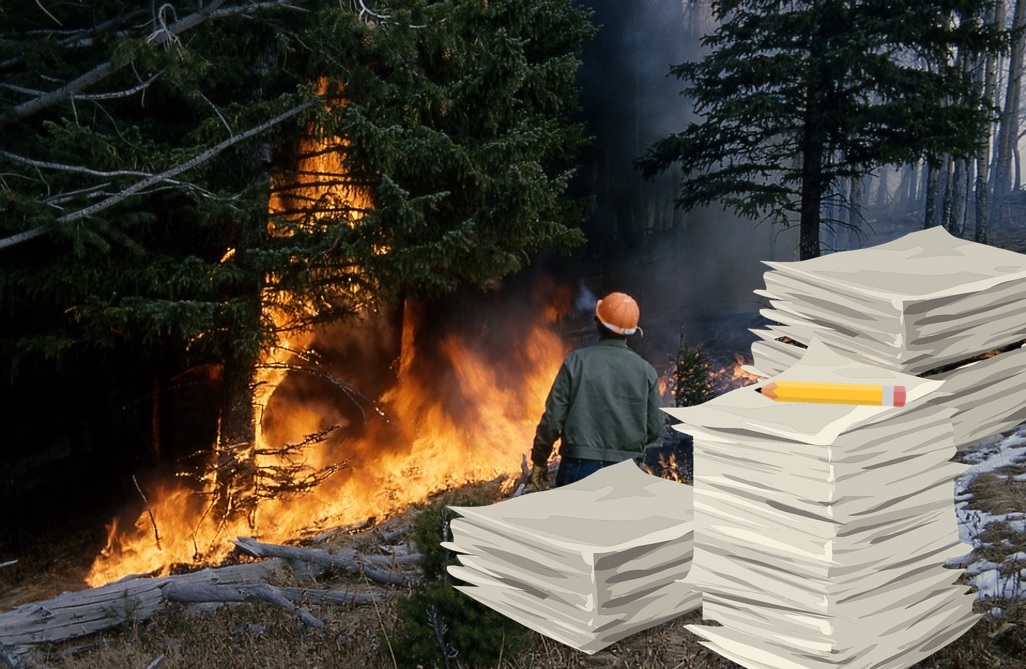
AFRC Supports New BLM Rule to Reduce Wildfire Risks, End ‘Paperwork Protests’
The American Forest Resource Council (AFRC) today applauded the Bureau of Land Management (BLM) for finalizing a new rule streamlining the process for active forest management on BLM-managed lands. The new rule closes a loophole in the public engagement process that has significantly delayed, and in some cases stopped, timber harvests and fuel reduction projects on BLM forest management projects in the West, including more than two million acres of O&C lands in Western Oregon.
“AFRC supports the BLM’s effort to modernize its forest management rules for the first time in 35 years,” said AFRC President Travis Joseph. “In particular, our communities and forests will benefit from the elimination of duplicative and unnecessary ‘paperwork protests’ that for too long have crippled the BLM’s ability to manage its lands while undermining critical work in the woods. To be clear, this important change does not eliminate public engagement or input as some anti-forestry groups will undoubtedly claim. Instead, it aligns BLM forest management with the procedures of the Forest Service and virtually every other federal agency.”
By law, the BLM is already required to engage the public when planning a timber harvest. The agency holds public meetings, produces and shares information about the project, asks for feedback, makes changes, and issues a decision. The new rules maintain the ability to appeal forest management decisions to the Interior Board of Land Appeals and to federal court for judicial review. Yet under the previous rule, anti-forestry groups could stall, delay, or stop forest management by filing written objections after environmental analyses have been completed, public input has been received, and land management decisions have been made.
Joseph said paperwork protests often contain hundreds of pages with frivolous points that have little to do with the work at hand. And because the BLM must respond to each point under current rules, Joseph says this broken process has drained taxpayer and agency resources while stalling or stopping timber harvests and fuel reduction projects.
In some cases, wildfires will devastate a forest where smart forest management is planned before the agency can even respond to the protests. For example, the Pickett Hog timber sale in Oregon received 29 protests in September 2017, including a 250-page protest containing 126 individual protest points– delaying the project by more than a year. Before the BLM could complete protest reviews and responses, the Taylor Creek fire burned the forest in July 2018.
“Paperwork protests filed by anti-forestry groups do not help the BLM improve forest management projects,” Joseph said “Instead, they make the public process as difficult, complex, and expensive as possible. These groups know BLM would spend months, even years, responding to their protests, which means less time spent planning and implementing the next project.”
Joseph said the new rules improve public participation in land management decisions by allowing the public to comment on forest projects earlier in the process when public input can have the greatest impact. “But ‘paperwork protests’ could no longer be used and abused – after decisions have been made – simply to stall work that helps keep our forests healthy, accessible and less vulnerable to severe fire,” he said.
Joseph also said the new rule will better enable the agency to meet its obligations under the federal O&C Act. The BLM has a legal mandate to harvest timber under the principles of sustained yield, meaning harvesting occurs at a rate that is in balance with, and does not exceed, the growth rate of the forest. Revenues from O&C timber harvests are shared with western Oregon counties to sustain essential public services.
###
About the American Forest Resource Council
AFRC is a regional trade association representing over 50 forest product businesses and forest landowners whose purpose is to advocate for sustained yield timber harvests on public timberlands throughout the West to enhance forest health and resistance to fire, insects, and disease. We do this by promoting active management to attain productive public forests, protect adjoining private forests, and assure community stability. We work to improve federal and state laws, regulations, policies and decisions regarding access to and management of public forest lands and protection of all forest lands. AFRC strongly believes that healthy managed forests are essential to the integrity of both ecosystems and communities. For more information, visit amforest.org
Disclaimer: Articles featured on Oregon Report are the creation, responsibility and opinion of the authoring individual or organization which is featured at the top of every article.

